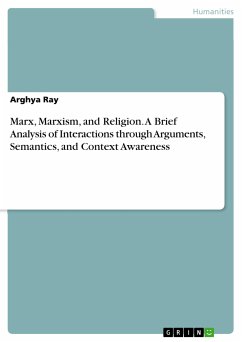Seminar paper from the year 2012 in the subject Sociology - Religion, grade: 6 (entspricht 1 in Dtschld.), University of Bern, language: English, abstract: In this paper, I take up Joel Robbins′3 anthropological approach towards a general theory on cultural change. For this I will focus on the key issues and main concepts of his work, which he mainly derives from Marshall Sahlins and Louis Dumont4. Robbins argues that we should replace our traditional models of syncretism with a model based on an understanding of the roles that values play in structuring the relations between cultural elements. Such a model allows for the analysis of both new and old elements in the cultures of converts, but does not assume that older elements are always more fundamental. This approach takes seriously, how indigenous people comprehend and construct their cultural and historical identities themselves and attributes an active role to indigenous societies in the process of change. Further, it recognizes that cultural transformation processes can lead to radical discontinuities within a cultural system and thus can create ―an entirely new culture in its own terms‖ (Robbins 2004a.: 10).









